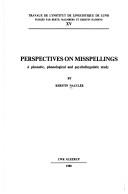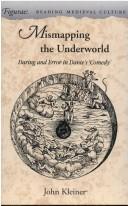Dissertation
Year: 2017 Publisher: Liège Université de Liège (ULiège)
Abstract | Keywords | Export | Availability | Bookmark
 Loading...
Loading...Choose an application
- Reference Manager
- EndNote
- RefWorks (Direct export to RefWorks)
Entrepreneurship concern all economies, in Belgium or abroad, without exception. In the context of mondialization and strong competition we face at this moment, the support of entrepreneurs is fundamental to stay competitive. Indeed, the entrepreneurial activity is so important because it allows to create wealth and employment. The second chance of the entrepreneur concern people who have made a bankruptcy involuntarily. In our culture, in most of the cases, failure is considered negatively by the various economic players: providers, financial institutions, etc. However, the phenomenon of disappearance is an integral part of the economic development process. The government attempts to implement procedures or make awareness conferences to change the mentality about the failure and to support the bankrupt. Yet from a legal point of view, the results are favorable but from a commercial and relational point of view, the changes are very low. Indeed, the bankruptcy is legally accepted but not societally. The result is that entrepreneurs are eager to start a new project but do not do it through the fear of failure. No one have the infused sciences to know if the activity will be a success or a failure. This is the reason why mistakes are an integral part of the business. The bankrupt has a positive effect and will be considered as learning and not just a miss. In most of the cases, the bankrupt is considered as the way to success. In most of the cases, we can talk about “constructive failure”. This research-thesis has the intention to demonstrate the potential who is hiding behind the second chance of the entrepreneurs and the existing obstacles. That it’s a niche to which one government must be interested in because it presents good prospects for the future.

ISBN: 914004727X Year: 1980 Publisher: Lund Gleerup
Abstract | Keywords | Export | Availability | Bookmark
 Loading...
Loading...Choose an application
- Reference Manager
- EndNote
- RefWorks (Direct export to RefWorks)
Spelling errors --- Misspellings --- Slips of the pen --- Spelling mistakes --- Errors --- Language and languages --- Spelling, Psychology of --- Orthography and spelling --- Spelling errors.
Book
ISBN: 9781847925657 1847925650 9781847925664 1847925669 Year: 2020 Publisher: Penguin
Abstract | Keywords | Export | Availability | Bookmark
 Loading...
Loading...Choose an application
- Reference Manager
- EndNote
- RefWorks (Direct export to RefWorks)
So much relies on science. But what if science itself can?t be relied on?Medicine, education, psychology, health, parenting ? wherever it really matters, we look to science for guidance. Science Fictions reveals the disturbing flaws that undermine our understanding of all of these fields and more.While the scientific method will always be our best and only way of knowing about the world, in reality the current system of funding and publishing science not only fails to safeguard against scientists? inescapable biases and foibles, it actively encourages them. Many widely accepted and highly influential theories and claims ? about ?priming? and ?growth mindset?, sleep and nutrition, genes and the microbiome, as well as a host of drugs, allergies and therapies ? turn out to be based on unreliable, exaggerated and even fraudulent papers. We can trace their influence in everything from austerity economics to the anti-vaccination movement, and occasionally count the cost of them in human lives.(https://www.penguin.co.uk/books/111/1117290/science-fictions/9781847925657.html)
Errors, Scientific. --- Fraud in science. --- Fraud in science --- Errors, Scientific --- Mistakes, Scientific --- Scientific errors --- Errors --- Scientific fraud --- Science --- Fraude scientifique --- ethics [philosophy] --- publishing

ISBN: 1283008270 9786613008275 0231502524 9780231502528 9780231116442 0231116446 9780231116459 0231116446 0231116454 9781283008273 Year: 2001 Publisher: New York Columbia University Press
Abstract | Keywords | Export | Availability | Bookmark
 Loading...
Loading...Choose an application
- Reference Manager
- EndNote
- RefWorks (Direct export to RefWorks)
One of the great paradoxes of modern times is that the more scientists understand the natural world, the more we discover that our everyday beliefs about it are wrong. Astronomy, in particular, is one of the most misunderstood scientific disciplines. With the participation of thousands of undergraduate students, Neil F. Comins has identified and classified, by origin and topic, over 1,700 commonly held misconceptions. Heavenly Errors provides access to all of them and explores many, including: Black holes suck in everything around them. The Sun shines by burning gas. Comets have tails trailing behind them. The Moon alone causes tides. Mercury, the closest planet to the Sun, is the hottest planet. In the course of correcting these errors, he explains that some occur through the prevalence of pseudosciences such as astrology and UFO-logy and some enter the public conscience through the "bad astronomy" of Star Trek, Star Wars, and other science-fiction movies.. Perhaps most important, Professor Comins presents the reader with the methods for identifying and replacing incorrect ideas-tools with which to probe erroneous notions so that we can begin to question for ourselves... and to think more like scientists.
Astronomy. --- Common fallacies. --- Blunders --- Errors, Popular --- Fallacies, Common --- Information, Misattributed --- Misattributed information --- Misconceptions, Popular --- Misinformation --- Mistakes, Popular --- Popular errors --- Popular misconceptions --- Errors --- Misinformation (Common fallacies) --- Astronomy --- Common fallacies
Book
ISBN: 1400859859 9781400859856 Year: 2014 Publisher: Princeton, NJ
Abstract | Keywords | Export | Availability | Bookmark
 Loading...
Loading...Choose an application
- Reference Manager
- EndNote
- RefWorks (Direct export to RefWorks)
These iconoclastic and witty essays are about what happens when scientists jump on band-wagons. Tony Rothman applies creative skepticism to contemporary fashions in science, including the "standard model" Big Bang theory, geodesic domes, the concept of nuclear winter, and sociological applications of the second law of thermodynamics. "Rothman proves himself an excellent communicator... I am grateful to him for he has enlarged my vision, increased my understanding, and made me more aware of the beauty of the patterns and connections of all the world."--Dick Kovan, New Scientist "These six delightful essays address and substantiate the sociological underpinnings of the scientific enterprise... I highly recommend this volume of excellent essays that remind us all of the `folly of mistaking a paradox for a discovery, a metaphor for a proof, a torrent of verbiage for a spring of capital truth, and oneself for an oracle...'"--Dennis W. Cheek, Science Books & FilmsOriginally published in 1989.The Princeton Legacy Library uses the latest print-on-demand technology to again make available previously out-of-print books from the distinguished backlist of Princeton University Press. These editions preserve the original texts of these important books while presenting them in durable paperback and hardcover editions. The goal of the Princeton Legacy Library is to vastly increase access to the rich scholarly heritage found in the thousands of books published by Princeton University Press since its founding in 1905.
Science --- Scientists --- Errors, Scientific --- Physical Sciences & Mathematics --- Sciences - General --- Mistakes, Scientific --- Scientific errors --- Errors --- Normal science --- Philosophy of science --- Philosophy --- Psychology --- Errors, Scientific. --- Philosophy. --- Psychology.
Book
ISBN: 0262027585 1322151369 0262325640 9780262325646 9780262027588 0262325667 Year: 2014 Publisher: Cambridge, Massachusetts
Abstract | Keywords | Export | Availability | Bookmark
 Loading...
Loading...Choose an application
- Reference Manager
- EndNote
- RefWorks (Direct export to RefWorks)
"Our lives revolve around the acquisition of information. Sometimes the information we acquire--from other people, from books, or from the media--is wrong. Studies show that people rely on such misinformation, sometimes even when they are aware that the information is inaccurate or invalid. And yet investigations of learning and knowledge acquisition largely ignore encounters with this sort of problematic material. This volume fills the gap, offering theoretical and empirical perspectives on the processing of misinformation and its consequences. The contributors, from cognitive science and education science, provide analyses that represent a variety of methodologies, theoretical orientations, and fields of expertise. The chapters describe the behavioral consequences of relying on misinformation and outline possible remediations; discuss the cognitive activities that underlie encounters with inaccuracies, investigating why reliance occurs so readily; present theoretical and philosophical considerations of the nature of inaccuracies; and offer formal, empirically driven frameworks that detail when and how inaccuracies will lead to comprehension difficulties"--MIT CogNet.
Errors, Scientific. --- Common fallacies. --- Cognitive science. --- Science --- Philosophy of mind --- Blunders --- Errors, Popular --- Fallacies, Common --- Information, Misattributed --- Misattributed information --- Misconceptions, Popular --- Misinformation --- Mistakes, Popular --- Popular errors --- Popular misconceptions --- Errors --- Mistakes, Scientific --- Scientific errors --- COGNITIVE SCIENCES/General --- COGNITIVE SCIENCES/Psychology/Cognitive Psychology --- Misinformation (Common fallacies)
Book
ISBN: 069108484X 9780691084848 Year: 1989 Publisher: Princeton (N.J.): Princeton university press,
Abstract | Keywords | Export | Availability | Bookmark
 Loading...
Loading...Choose an application
- Reference Manager
- EndNote
- RefWorks (Direct export to RefWorks)
Cosmology --- filosofie --- Geodesy. Cartography --- fysica --- History of physics --- Didactics of sciences --- Philosophy --- Science --- Scientists --- Errors, Scientific --- Psychology --- -Scientists --- -Professions --- Natural science --- Science of science --- Sciences --- Mistakes, Scientific --- Scientific errors --- Errors --- -Philosophy --- Normal science --- Philosophy of science --- Science - Philosophy --- Scientists - Psychology
Book
ISBN: 9781472418418 1472418417 1472418425 1351962248 1315263831 1138430862 9781472418425 9781306170086 1306170087 9781472418432 9781315263830 9781351962247 9781351962223 9781138430860 135196223X Year: 2013 Publisher: Surrey, UK England
Abstract | Keywords | Export | Availability | Bookmark
 Loading...
Loading...Choose an application
- Reference Manager
- EndNote
- RefWorks (Direct export to RefWorks)
This succinct but absorbing book covers the main way stations on James Reason's 40-year journey in pursuit of the nature and varieties of human error. He presents an engrossing and very personal perspective, offering the reader exceptional insights, wisdom and wit as only James Reason can. A Life in Error charts the development of his seminal and hugely influential work from its original focus into individual cognitive psychology through the broadening of scope to embrace social, organizational and systemic issues.
Industrial accidents. --- Errors. --- Travail --- Erreurs --- Accidents --- Industrial accidents --- Accidents, Industrial --- Accidents, Occupational --- Employees --- Industrial disasters --- Industrial injuries --- Occupational accidents --- Occupational injuries --- Disasters --- Disability evaluation --- Errors --- Business & Economics --- Labor & Workers' Economics --- Mistakes --- Fallibility --- E-books

ISSN: 15709434 ISBN: 9789004158115 9004158111 9786611926243 1281926248 904741988X 9789047419884 9781281926241 6611926240 Year: 2007 Volume: 115. Publisher: Leiden Biggleswade Brill Extenza Turpin [distributor]
Abstract | Keywords | Export | Availability | Bookmark
 Loading...
Loading...Choose an application
- Reference Manager
- EndNote
- RefWorks (Direct export to RefWorks)
The present volume is entirely dedicated to the investigation of the implications and effects of breaking ritual rules, of failed performances and of the extinction of ritual systems. While rituals are often seen as infallible mechanisms which ‘work’ irrespective of the individual motivations of the performers, it is clearly visible here that rituals can fail, and that improper performances do in fact matter. These essays break new ground in their respective fields and the comparative analysis of rituals that go wrong introduces new perspectives to ritual studies. As the first book-length study on ritual mistakes and failure, this volume begins to fill a significant gap in the existing literature. Contributors include: Claus Ambos, Christiane Brosius, Johanna Buss, Burckhard Dücker, Christoph Emmrich, Brigitta Hauser-Schäublin, Maren Hoffmeister, Ute Hüsken, Brigitte Merz, Axel Michaels, Karin Polit, Michael Rudolph, Edward L. Schieffelin, Jan A.M. Snoek, Eftychia Stavrianopoulou, and Jan Weinhold.
Ritual. --- Rituel --- Ritualism. --- 291.37 --- Ritual --- Cult --- Cultus --- Liturgies --- Public worship --- Symbolism --- Worship --- Rites and ceremonies --- Ritualism --- Godsdienstige ceremonieën. Religieuze symboliek. Mysteries. Inwijding --- Errors. --- Errors --- Religion - General --- Religion --- Philosophy & Religion --- Mistakes --- Fallibility

ISBN: 0804721432 Year: 1994 Publisher: Stanford (Calif.): Stanford university press
Abstract | Keywords | Export | Availability | Bookmark
 Loading...
Loading...Choose an application
- Reference Manager
- EndNote
- RefWorks (Direct export to RefWorks)
Errors and blunders, Literary --- Anachronisms, Literary --- Blunders, Literary --- Literary anachronisms --- Literary blunders --- Literary errors and blunders --- Mistakes, Literary --- Literature --- Dante Alighieri --- Errors and blunders, Literary. --- Dante Alighieri, --- Alighieri, Dante --- Dante, Alighieri --- Alih'eri, Dante

 Search
Search Feedback
Feedback About UniCat
About UniCat  Help
Help News
News